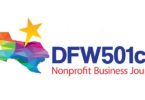It may take a village to raise a child, but it takes a metropolis to identify and attack the ills of inequality. The Fort Worth Task Force on Race and Culture, convened by the city in December 2016, is reaching out to every resource and voice available, and area non-profits have been major players in the past year’s activities.
The Fort Worth City Council convened the task force after public outrage following the arrest of Jacqueline Craig. The arrest forced acknowledgement of racial inequities in Fort Worth. The Task Force has been assigned three tasks: conduct community conversations about race and culture, assess disparities in the provision of municipal services and take a look at the leadership training needs within the City.
More than 40 local non-profit organizations from churches to social service agencies and from fraternal organizations to education institutions hosted 17 Community Conversations at community centers, schools and churches with speakers from law enforcement, industry, etc. Independently or as smaller groups, the non-profits held their own sessions to address the six major goal areas of criminal justice, transportation, housing, education, economic development and health.
Various non-profit leaders are eager to explain their programs and how their work can dovetail with the task force goals. The Hispanic Chamber of Commerce, Fort Worth Chamber of Commerce, the Fort Worth Metropolitan Black Chamber of Commerce (FWMBCC), NAACP and the Black Contractors Association met on economic development issues.
“We paired up since we share similar interests,” said President and CEO Devoyd Jennings of the FWMBCC. “We discussed issues such as how to create economic interest in or reviving urban villages. We’ve talked about more contractual opportunities for construction, not only with the city but also private ventures. We have to find out what the obstacles are for getting capital for small businesses but also how to create small business retention.”
That’s where crossover instantly occurs in the conversations. Jennings said there should possibly be more training so small business owners are more likely to succeed. Education enters the arena, then Jennings injects the need for transportation for those residents to travel to jobs outside their neighborhoods.
“There’s lots of overlap,” said Erika Beltran, regional executive director for the Tarrant County division of nonprofit, Leadership ISD., referring to the number of educational non-profits participating in the task force’s undertaking. Leaderhisp ISD is a nonprofit organization whose mission is to advance education excellence and equity in the communities it serves. “Schools cannot do it alone, however,” she said. “We need community involvement.”
“I think this is a really tall order, but I am glad that the city, at the very least, created the task force to have dialogue,” she said. “It will require all to stay engaged and look at the data going forward.”
The Task Force has issued an interim report that is available for download from their website. In this report, the Task Force identifies areas of disparity attributable to race in culture. These areas include Criminal Justice, Economic Development, Education, Health, Housing and Transportation, and specific to municipal services include Police Services, Court Services, Home Repair Service and Contracting.
Non-profits will be invited to give their input before the Task Force finalizes its recommendations to the city, said Rosa Navejar, Task Force presiding co-chair. “After hearing from them and others, we will tweak our response.”
But the non-profits’ participation might not end there. Depending on what the city’s final actions are, “the non-profits can partner with or even take the lead once we know more and get response from our recommendations,” said Navejar. The city will receive the task force’s final report December 3. Then the action should begin, and non-profits could become leaders in pursuing racial and cultural equity in Fort Worth.
Non-profits that hosted Community Conversations include Arborlawn UMC, the Black Contractors Association, Bridge Black Professionals, Catholic Charities, Downtown Fort Worth Inc., Episcopal Diocese of Fort Worth, Fort Worth Chamber of Commerce, Fort Worth ISD, Fort Worth League of Neighborhoods, Fort Worth Metropolitan Black Chamber of Commerce, Fort Worth Sister Cities International, Harvest UMC, Hispanic Chamber of Commerce, Hispanic Women’s Network of Texas, Junior League of Fort Worth, La Trinidad UMC, Leadership Fort Worth, Leadership ISD, Local Organizing Committee, Multicultural Alliance, NAACP, National Hispanic Institute, Read2Win, Rotary Club of Fort Worth, Southeast Fort Worth Inc., Tarrant County College, Tarrant NET, Texas Christian University, Texas Wesleyan University, The Great Commission Baptist Church, The Links, The Potters House, Trinity Habitat for Humanity, United Community Centers, United Fort Worth, Unity in the Community, Vision Fort Worth and Women’s Policy Forum.
Arborlawn UMC, Hispanic Chamber of Commerce, Read2Win, Fort Worth League of Neighborhoods and Texas Wesleyan University were contacted for this article but were unavailable for comment.








